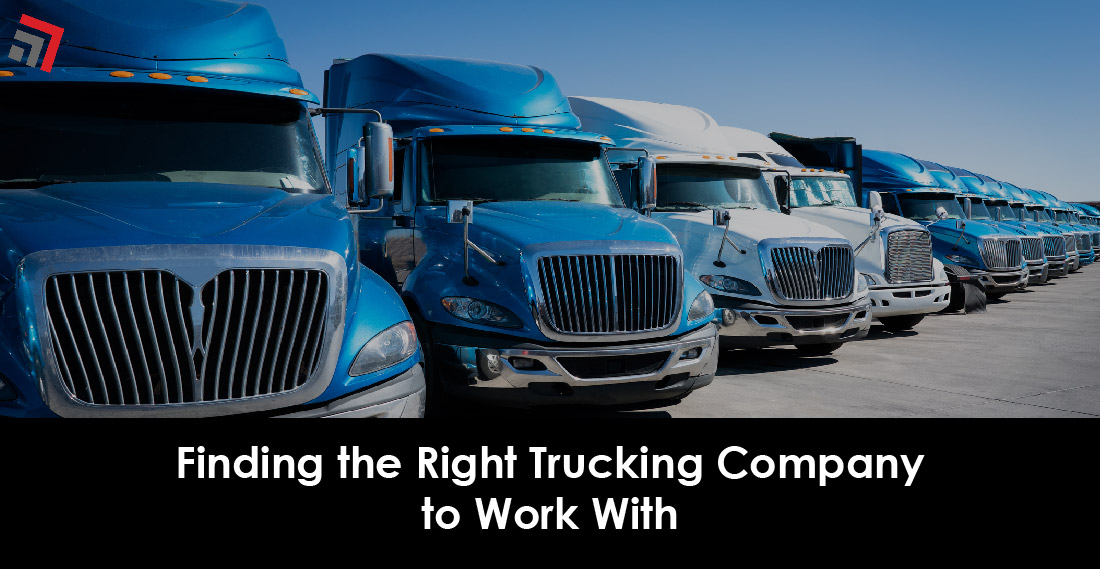There are a multitude of directions truckload shippers and brokers can veer towards finding a truck to move their freight. Maybe, too many directions. In the realm of surface transportation, thousands upon thousands of trucking companies (carriers), whether small or large, whether well-known or unknown, exist in the market.
The following are the pros and cons of working with larger carriers versus smaller ones or independent truck drivers.
Working with large trucking companies
One way to explain “large carrier” is a trucking company that everyday passenger drivers would recognize on the freeway. Examples of trucking giants include Knight-Swift, J.B. Hunt, Landstar, and Schneider. Next to recognition, these companies boast millions of dollars in annual revenue and possess a wide capacity of trucks and equipment deployed across regional networks.
The main advantage of working with a large carrier is predictability in service. It’s sort of like diners feeling assured that the food and service they receive at a McDonald’s in Wisconsin would be more or less similar to the food and service they receive at a McDonald’s in Texas. Much like the expectation of a familiar tasting hamburger, shippers who use large carriers expect a certain standard of service and availability. For the most part, large carriers deliver on this expectation.
Commerce Express Inc.’s Managing Director of Operations Andrew Koval compares the comfort shippers feel when working with large carriers as a “warm safety blanket”. If Scheider or J.B. Hunt were a box of chocolates, they would be comprised of original Hershey bars with minimal surprises.
Is that always the case though? Well, not all the time. In fact, there are cons associated with large carriers, negatives that typically mar their appeal to smaller shippers with low volume.
The first reason being, despite their number of assets, large carriers don’t have a truck in every nook and cranny of the contiguous U.S. Large carriers mainly position their trucks on lucrative routes between well-populated cities. That said, they are usually not interested in shippers with niche, or less-trafficked, lanes.
The second reason that large carriers may not be the best fit would be volume. Small to medium size businesses likely don’t have enough regular shipments to be prioritized by large carriers. These trucking companies often work directly with large retailers and other shippers and only take on loads from smaller shippers if there’s available capacity after the fact. In times of high demand, like during the pandemic, it’s common for large carriers to reject loads of smaller shippers.
Working with smaller trucking companies, owner-operator truck drivers
The polar opposite of larger, household-name, carriers in the market are smaller, seldom known, trucking companies and independent truck drivers, commonly known as owner-operators. Examples of these include carriers that may have as few trucks and drivers as shippers contacting them have fingers and toes. In the case of owner-operators, it’s self-explanatory—the entirety of the operation is one driver and one truck, which the driver owns and operates.
The obvious con for shippers is the lack of capacity and routes smaller carriers and own-operators can run. Smaller carriers are usually confined to one region, whether by choice or necessity, while owner-operators, despite wielding autonomy over choosing whichever load is offered on the market, are only able to move one shipment at a time. If one small carrier or owner-operator is compared to one large carrier, the formers are infinitely outclassed by the latter, but there’s strength in numbers. There can only be so many J.B. Hunt’s, Schnieder’s, or Landstar’s on the road. The multitude of smaller carriers and owner-operators fill the coverage void leftover from larger carriers. As powerful trucking enterprises focus on large shippers and well-trafficked lanes, the aforementioned shippers with niche routes and small to mid-size businesses can be shippers of choice for likewise smaller logistics firms.
The main advantage of working with smaller carriers and owner-operators is flexibility. If larger carriers are viewed as generalists, the smaller ones can be viewed as specialists who are receptive to hauling loads on specific routes and rarely use discretion when it comes to shipper volume. Owner-operators also present another layer of flexibility as they have the freedom to set their own hours (within federal HOS rules), accept any available load, and drive any route or distance.
Service perspective: Commerce Express is a carrier and shipper matchmaker
On top of the thousands upon thousands of trucking companies, Commerce Express Inc. serves as a resource to connect asset-owning carriers to the supply chain networks of shippers.
Shippers, just like carriers, come in different sizes. As a buyer in the transportation market, they must find compatible carriers to work with. Ones that can find the right service option for a competitive price.
However, in a crowded carrier market, it’s exceedingly difficult for shippers, on their own, to find one true love. For many, it’s a never-ending cycle similar to speed dating: a quick conversation over text (quotes over email), maybe a couple of dates (trial shipments and loads). Anything after could be another text out of the blue (another quote or price check) or, in some cases, a one-night stand (one-off shipment), which afterwards is awkward as neither party feels like it was a step towards an impactful partnership.
Consider Commerce Express Inc. as a matchmaker, a cutting-edge online dating app. Our team presents shippers with several options based on their respective shipping requirements and stated expectations. From there, shippers can choose whichever option holds the most value to them, whether that’s saving on a rate, a faster lead time, or using a familiar carrier.
Can Commerce Express find you the perfect carriers to work with?




Recent Comments